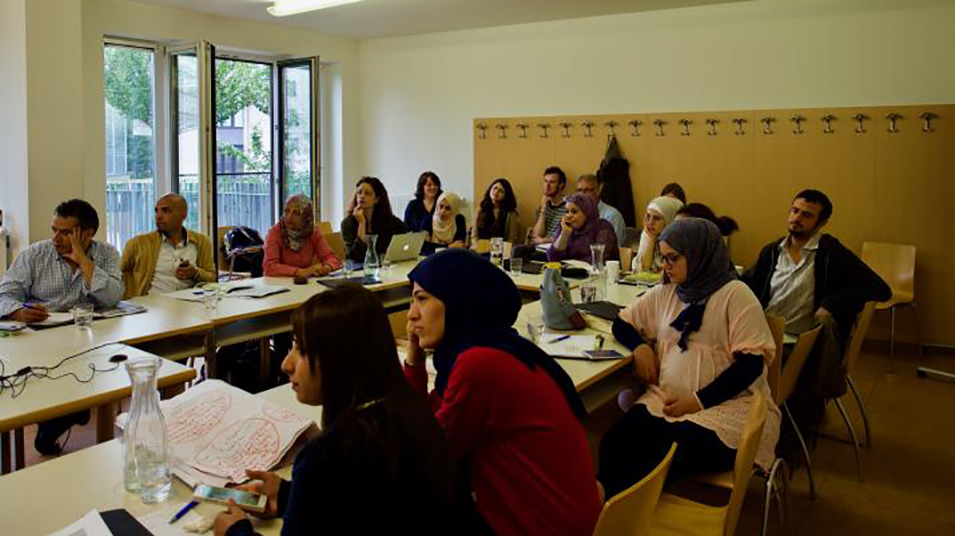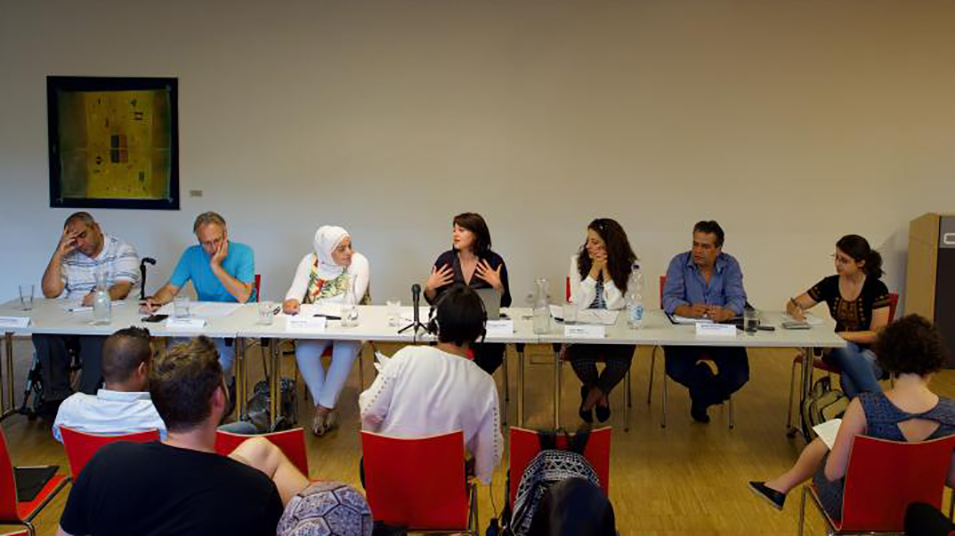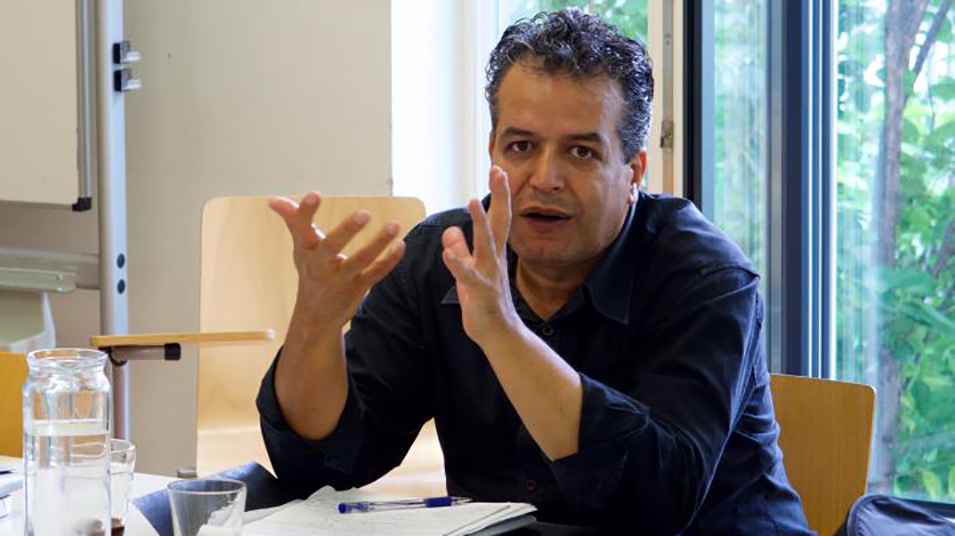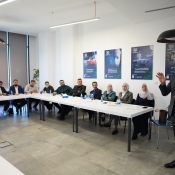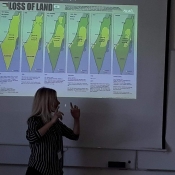Rooting Development project concludes ten-day summer school in Austria
The Rooting Development in the Palestinian Context Project, initiated by the Center for Development Studies at Birzeit University, organized its second Summer School in Vienna, Austria, this summer. Entitled “Rooting and Contextualizing Research in the Palestinian Context,” the courses and discussions ran from July 21-30, 2018.
The Summer School, attended by Palestinian, Lebanese, and Jordanian researchers and trainees, hosted discussions that centered on knowledge production in and about Palestine, with the goal of reviewing research trends, producing alternative knowledge, and identifying field research challenges in Palestine.
Attendees engaged in extensive discussions, analysis, exchange of ideas and concepts, and cooperation by reviewing and critiquing Western or quasi-Western research practices, aiming to reach a consensus on alternative practices that are based on the collective experiences of the participants.
Coordinator of the Rooting Development in the Palestinian Context Project Ayman Abdel Majeedsaid that the experiences of trainees were examined under the epistemic foundation already set forth by the project.
Discussions focused on research in the following contexts: research in and about refugee camps in Jordan, research in and about refugee camps in Lebanon, research under siege: Gaza - via Skype; and research under occupation: the West Bank, followed by a discussion on “Research in and About Palestinian Communities: Common Grounds” by Abdel Majeedand Helmut Krieger.
The second day of the Summer School saw interventions by partner institutions, such as a presentation by Ali Abu Zaid, project coordinator at Al-Azhar University in Gaza, on research challenges in Gaza - specifically, the political disunion and Israeli siege - and a presentation by Manal E’Mar, project coordinator in Jordan, on the relationship between research and community work.
Abdel Majeed’s presentation revolved around research in and about Palestine, with focus on lessons learned from experiences in the West Bank, Gaza, and the diaspora. The intervention drew attention to research identity and its ideological nature that alternates between a dominated, controlled position, and a resistance-based approach to research.
The third day featured Krieger, who evaluated research policies and analyzed their impact on the relationship between research and the Palestinian society, andBeatriz Gomes, a professor of development at the University of Vienna, who discussed racism and knowledge in development contexts.
Kassem Sabah, project coordinator in Lebanon, explored the history of knowledge production in the fourth day. He reviewed the work of Islamic thinkers such as Ibn Taymiyyah, Abd al-Rahman al-Kawakibi, and Sayyid Qutb. Maya Zabdawi and
Klaudia Rottenschlager from the University of Vienna and Maya Zebdawi from the Lebanese University discussed the PLO Research Center in Beirut as a study case for the production of knowledge in times of revolution, followed by an intervention by Lena Meari, director of the Institute of Women’s Studies at Birzeit University, on research with Palestinian female prisoners.
The final day featured a roundtable discussion chaired by Abdel Majeedon alternative development, its relationship to resistance, and development as an act of opposition. The final session of the Summer school showcased a vision for the future of partner foundations and institutions in Lebanon and Jordan. Abdel Majeed, E’Mar, and Rawya Mousa had presentations on the possibility of including research units within the structures of those partner organizations.
The Rooting Development in the Palestinian Context Project, carried out together with the University of Vienna, was launched in January 2017 and will last until January 2019. It is aimed at Palestinian youth in the West Bank, Gaza, and refugee camps in Lebanon and Jordan.
The project integrates and builds on the developmental challenges, experiences, and popular strategies of various segments of the Palestinian population in their different locations, in order to bridge the divide between academic knowledge producers and community-based knowledge and development strategies.

